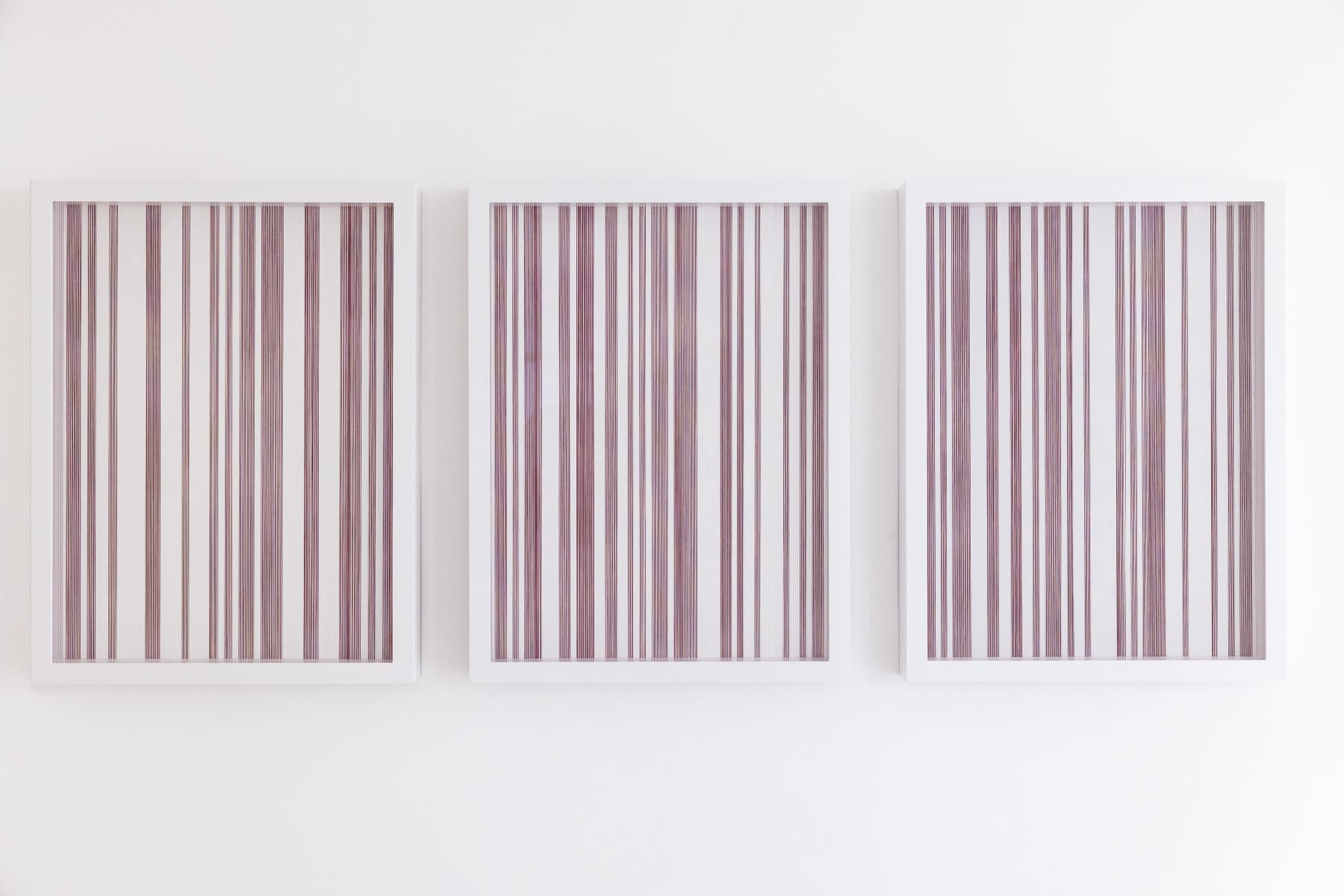Open a larger version of the following image in a popup:
 Exhibition view "Moire Moiré" at Galerie Watson
Exhibition view "Moire Moiré" at Galerie Watson
 Exhibition view "Moire Moiré" at Galerie Watson
Exhibition view "Moire Moiré" at Galerie Watson
Open a larger version of the following image in a popup:
 Exhibition view "Moire Moiré" at Galerie Watson
Exhibition view "Moire Moiré" at Galerie Watson
 Exhibition view "Moire Moiré" at Galerie Watson
Exhibition view "Moire Moiré" at Galerie Watson
Open a larger version of the following image in a popup:
 Exhibition view "Moire Moiré" at Galerie Watson
Exhibition view "Moire Moiré" at Galerie Watson
 Exhibition view "Moire Moiré" at Galerie Watson
Exhibition view "Moire Moiré" at Galerie Watson
Jeongmoon Choi South Korea, b. 1966
I_am_ok, 2024
Threads, wooden frame with museum glas
Each 83,6 x 63,5 x 9,5 cm
Further images
Jeongmoon Choi’s „I_am_ok“ (2024) captures a universal human experience: the simple phrase ‚I am ok‘ often hides the complexities of our true emotions. The piece, woven meticulously from threads and...
Jeongmoon Choi’s „I_am_ok“ (2024) captures a universal human experience: the simple phrase ‚I am ok‘ often hides the complexities of our true emotions. The piece, woven meticulously from threads and framed in wood, reveals its message only through a barcode scanner, much like how we often conceal our feelings behind a surface of normalcy.
Saying ‚I’m ok‘ has become a default response—a shield to avoid vulnerability and protect ourselves from awkwardness or discomfort. It’s a way to hide struggles, fear, or pain in a world where admitting anything else can feel like an emotional risk. Yet, this phrase creates a silent disconnect between what we feel and what we express.
Choi’s work invites us to reflect on this gap and the weight behind those three words. Perhaps breaking the habit of hiding behind ‚I’m ok‘ is the first step toward deeper connection and understanding—revealing that, beneath the surface, we’re all yearning to be truly heard.
Saying ‚I’m ok‘ has become a default response—a shield to avoid vulnerability and protect ourselves from awkwardness or discomfort. It’s a way to hide struggles, fear, or pain in a world where admitting anything else can feel like an emotional risk. Yet, this phrase creates a silent disconnect between what we feel and what we express.
Choi’s work invites us to reflect on this gap and the weight behind those three words. Perhaps breaking the habit of hiding behind ‚I’m ok‘ is the first step toward deeper connection and understanding—revealing that, beneath the surface, we’re all yearning to be truly heard.




